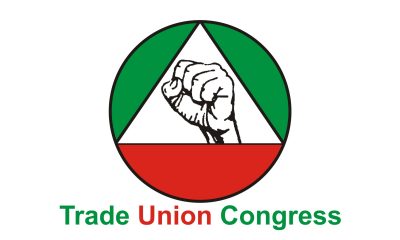Business
ILO Adopts Recommendation On Labour Standard
The International Labour
Organisation (ILO) has adopted a recommendation on international labour standard with a view to helping workers transit from the informal to the formal economy.
The Director-General of ILO, Mr Guy Ryder, made this known in interview with newsmen in Geneva, Switzerland on the sideline of the 104th session of the International Labour Conference.
Ryder said that putting the recommendation into practice would help hundreds of millions of workers and economic units move out of the informal economy.
“I think it has been an important moment after two years of negotiations; the conference just adopted this recommendation on the transition from the informal to the formal economy.
“This is something, which affects a very large part of the world’s working population – nearly half is still working in informality. “And over the years, we’ve seen a growing consensus between governments, workers and employers that the right thing to do is to move these people in to formal employment situation.
“We know it is not easy; we know that these are processes, which are complicated; they have different components.
“And I think the great value of this recommendation – and it is the first time – is that we now have an international framework of guidance for member states on how to bring this about.
“It will be a very important instrument for the ILO as we work to cooperate with our member states to help them to bring this about.
“It is not just the adaptation of this recommendation now, it is actually putting this into practice that will matter.“
Ryder, who said that more than half of the world’s workforce was estimated to be trapped in the informal economy, described the development as the denial of their rights to work.
According to him, the absence of sufficient opportunities for quality employment, inadequate social protection, lack of social dialogue and low productivity constitute a significant obstacle to the development of sustainable enterprises. He said that the new recommendation acknowledged that most people entered the informal economy not by choice, but due to a lack of opportunities in the formal economy and an absence of any other means of livelihood.
He said that the new international labour standard would provide strategies and practical guidance on policies and measures that could facilitate the transition from the informal to the formal economy.
The ILO director-general said that the new labour standard would provide guidance for member states to facilitate the transition of workers and economic units from the informal to the formal economy.
He added that the development would encourage respect for workers’ fundamental rights and ensure opportunities for income, security, livelihoods and entrepreneurship.
“It will also promote the creation, preservation and sustainability of enterprises and decent jobs in the formal economy and the coherence of macro-economic.
“Others are employment, social protection and other social policies, and prevent the informalisation of formal economy jobs,“ he said
Ryder, who said that the recommendation was passed by 484 votes in its favour, added that it garnered outstanding support from ILO’s tripartite constituents.
He said that the adoption of the recommendation was a crucial step toward assisting countries to set up the necessary measures that would promote the creation of decent jobs and sustainable enterprises in the formal economy.
Business
Chivita, Hollandia Reward Outstanding Trade Partners At Annual Conference

Chivita| Hollandia (CHI Limited) leading fruit juice and value-added dairy manufacturer in Nigeria has rewarded its long standing distributors at the recently held 2024 Distributor Conference. The event with the theme, “Break Boundaries Exceed Expectations” served as a platform to recognise and reward the exceptional contribution of the distributors and wholesalers who play a critical role in Chivita|Hollandia (CHI Limited) success and business goals for the year.
The Distributor Conference was held in two sessions. While the morning session featured keynote addresses, industry insights and brand immersion experience, the evening session was a cultural display of elegance and funfair that culminated in the award presentation and recognition of the contribution the trade partners made to the company in the 2023 year under review.
A key highlight of the event was the award ceremony which acknowledged outstanding trade partners in various regions across the country. The awards recognized commitment, dedication, and outstanding performance in areas of sales growth, brand promotion, and market expansion.
Eelco Weber, Managing Director, Chivita|Hollandia (CHI Limited), stated that the company’s success story is incomplete without the strong partnerships it has built with trade partners. “Today, we celebrate not only the achievements, but the collaborative spirit that has made our growth possible” he said.
Bola Arotiowa, Chief Commercial Officer, Chivita|Hollandia (CHI Limited), in his statement revealed that, the event which was first of its kind will continue to be an annual meeting to enable the company work more closely with its distributors, share insights and action points, help the trade partners familiarize themselves with the company’s goals and objectives for each year, and serve as a driver for mutual success.
“Our distributors are the backbone of Chivita|Hollandia (CHI Limited). Their relentless efforts in distributing our products, promoting our brands, and expanding our reach across the nation is truly commendable. As the bridge between us and our valued consumers, it is very important to reward their hard work and dedication for being an essential part of the Chivita|Hollandia (CHI Limited) family. Together, we will continue to deliver great products to our conusmers which in turn will deliver value to them”, Mr. Arotiowa added.
Speaking at the conference, HajiyaBilikisuSaida, Chief Executive Officer of Smabirm Nigeria Limited, who won the Outstanding Distributor of the Year in North 1 region, and got a reward of two million Naira worth of Chivita|Hollandia (CHI Limited) products expressed delight at the company’s recognition, and stated that the awards served as a way to inspire distributors to do more and put in more effort, which in turn would help both the distributors and the company to grow.
Other outstanding performance distributors of the year rewarded with a two million Naira worth of Chivita|Hollandia (CHI Limited) stock include, Sunny Chuks Limited for East 1 region, MRS FA & Sons Limited for East 2 region, Hussakas Ventures for North 2 region, Rookee 1388 Ventures for Lagos 1 region, Pik N Pil Ventures for Lagos 2 region, FaithJoe Event Management Limited for West 1 region, and Progress Family Nigeria Enterprise for West 2 region.
The annual Distributors Conference aims to strengthen the bond between Chivita|Hollandia (CHI Limited) and its trade partners. This collaborative approach fosters mutual growth and ensures the continued success of the brands in the Nigerian market.
Business
AXA Mansard Backs Female-Owned MSMEs With N1.4m Grant

A global leader in insurance and asset management, AXA Mansard, has supported three female-owned MSMEs with business grants totaling 1.4 million to boost their operations.
This, the company said, is part of its commitment to women and the Medium, Small, and Medium-scale Enterprise (MSME) sector in the country.
The three businesses were successful at the International Women’s Day Pitch Competition, organised in partnership with SME 100 Africa in Lagos.
According to the Head of Marketing, AXA Mansard, Olusesan Ogunyooye, the competition, which is aimed at supporting female entrepreneurs in Nigeria, “is another way AXA is demonstrating its commitment to the causes of women and stimulating the MSME sector in Nigeria”.
The business pitch competition received numerous entries from women across different sectors, but after a rigorous selection process, shortlisted participants were selected to participate in the competition.
Ogunyooye said “the programme provided a unique opportunity for women from various works and socio-economic classes to showcase their innovative ideas and solutions in sectors such as food, tech, fashion, and fragrance, creating an atmosphere filled with excitement, enthusiasm, and a strong sense of community”.
He stressed the importance of investing in women, saying it is not just the right thing to do, but also aligns with AXA’s purpose of acting for human progress.
He explained that AXA believes the future of women should not be at risk, hence investing in their economic empowerment is a crucial part
Business
Fuel Scarcity’ll Last For Two More Weeks -IPMAN

The Independent Petroleum Marketers Association of Nigeria, IPMAN, said yesterday that the petrol scarcity currently spreading to more states across the country will take at least two weeks to normalise.
This is even as the Nigerian National Petroleum Company Limited, NPCL insisted yesterday that it has adequate stock of the product.
However, the Public Relations Officer of IPMAN, Chinedu Ukadike, said the product is not available in the country.
He said it has become a bit of a challenge to source the product because most refineries in Europe are undergoing turnaround maintenance.
Ukadike also blamed the acute shortage in supply on importation bottlenecks and the slow pace of marketers’ licence renewal by the Nigerian Midstream and Downstream Petroleum Regulatory Authority, NMDPRA.
He disclosed that only 1,050 marketers out of 15,000 have had their licences renewed by NMDPRA.
He said: “The situation is that there is no product. Once there is a lack of supply or inadequate supply, what you will see is scarcity and queues will emerge at filling stations.
“On the part of NNPCL, which is the sole supplier of petroleum products in Nigeria, they have attributed the challenge to logistics and vessel problems.
“Once there is a breach in the international supply chain, it will have an impact on domestic supply because we depend on imports. I also have it on good authority that most of the refineries in Europe are undergoing turnaround maintenance, so sourcing petroleum products has become a bit difficult.
“NNPC Group CEO has assured us that there will be improvement in the supply chain because their vessels are arriving. Once that is done, normalcy will return. This is because once the 30-day supply sufficiency is disrupted, it takes two to three months to restore it.
“We expect that by next week or so, NNPC should be able to restore supply and with another week, normalcy should return”.
On challenges faced by marketers in renewing their licences, he said: “NNPC has said the marketers who have not been able to renew their licences will not be allowed to remain on their portal which has been shut for some time now. Because of this, we have not been able to request new products.
“At this nascent period of deregulation, you will discover that this leads to scarcity, even when the product arrives. As it is now, even by their data, out of 15,000 marketers that are on the portal with licences, only 1,050 renewed their licences.
“The requirement for renewal by NMDPRA is so much. Marketers are facing a hostile environment. NNPC placed a deadline of April 15, 2024, for marketers to renew their licences.
“We are, therefore, appealing to NNPC to extend this deadline and also to NMDPRA to hasten the release of licences of marketers who have completed their processes, and also reduce bottlenecks around licence renewals”.
However, reacting to the crisis yesterday, Chief Corporate Communications Officer, NNPC Ltd, Olufemi Soneye, expressed optimism that the long queues will clear in the coming days, adding that NNPC Ltd has adequate stock.
He stated: “The Nigerian National Petroleum Company Limited, NNPCL, wishes to clarify that the tightness in the supply of Premium Motor Spirit currently being experienced in some areas across the country is a result of logistics issues and they have been resolved.
“It also wishes to reiterate that prices of petroleum products are not changing. It urges Nigerians to avoid panic buying as there are sufficient products in the country.”
Similarly, the Chief Executive Officer/Executive Secretary, Major Energy Marketers Association of Nigeria, Mr. Clement Isong, said: “As the NNPC Ltd said, there were logistics issues and they have been resolved. The marketers who have fuel, are working round the clock and the queues will be cleared in the coming days.”
However, the shortage of petrol witnessed in Nasarawa, Niger, Abuja, the Federal Capital Territory, FCT, last week, spread to Lagos, Oyo, Osun and other states, weekend, thus affecting the movement of goods and persons and by extension, the nation’s economy.
In Lagos, motorists and other users woke up yesterday to witness long queues at the few filling stations which had the product to sell, while many outlets belonging mostly to independent marketers, without the product, were closed.
However, some major marketers, including 11 Plc and NNPC Ltd, with stocks sold the product at over N600 per litre, while the few independent marketers with the product sold it at between N650 and N700 per litre, depending on location.
Checks by The Tide’s source indicated that many motorists and other users were compelled by circumstances to patronise black market operators who openly sold the product along Ikorodu Road, Isolo and other locations in jerry cans at between N900 and N1,000 per litre.
Further checks indicated that transporters increased fares by 100 per cent to cover the high cost of petrol.
For instance, commuters paid N2,000 from Mile 12 to Mile 2, a distance that used to cost them N1,000, while others paid N1,000 from CMS to Mile 2, which previously cost about N500.
The fuel situation in the ancient city of Kano worsened yesterday as most of the petroleum stations were shut.
Vanguard checks observed long queues in the few filling stations still dispensing the product in the state capital.
It was observed that independent marketers and some major marketers who were seen selling fuel sold it as high as between N850 and N900 per litre.
-
Politics3 days ago
How We Saved N2.3bn From LG Reforms – Diri
-
Sports3 days ago
WADA Plans Review Of Failed Tests
-

 News18 mins ago
News18 mins ago82nd Birthday: Odu Eulogises King Dandeson Jaja
-

 News3 days ago
News3 days ago524 Firms Bid For NRC’s 2024 Capital Procurement -Okhiria
-
Nation3 days ago
Fubara Has Rekindled Rivers Hope-Former Envoy
-

 Rivers3 hours ago
Rivers3 hours agoFour Dead, 70 Vehicles Burnt In Fuel Tanker Explosion In Rivers
-

 News3 days ago
News3 days agoTUC Wants FG To Pay Wage Award For March, April
-
Entertainment3 days ago
Halliday Attributes Collaboration Hindrance To Sentiments, Others

